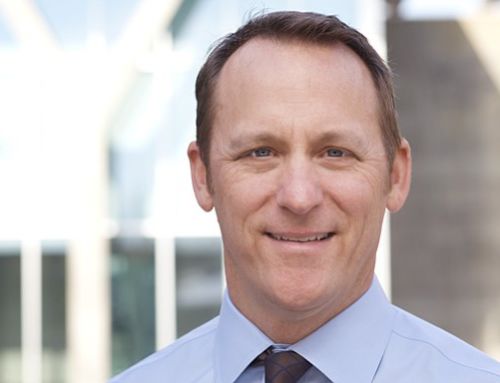By: Dean Niewolny, Chief Executive Officer of Halftime Institute
Is pursuing success and the accumulation of wealth “okay” for Christians? For years, many have wrestled with this question.
However, the root of the matter is less about how much money you have, and more about where your heart is. If God has given you the ability to make money, and it’s His money anyway, the question then becomes what are you doing with that money for Kingdom purposes?
Rather than encouraging you to sell your belongings and take a vow of poverty, I’d like to offer up 3 Biblical Principles for Pursuing Financial Freedom that will positively influence the way we steward our finances as Christ-followers seeking eternal impact.
Principle #1: Live Within Your Means
Take a moment to read and reflect on these passages of scripture:
But godliness with contentment is great gain, for we brought nothing into the world, and we cannot take anything out of the world. But if we have food and clothing, with these we will be content. But those who desire to be rich fall into temptation, into a snare, into many senseless and harmful desires that plunge people into ruin and destruction. For the love of money is a root of all kinds of evils. It is through this craving that some have wandered away from the faith and pierced themselves with many pangs. But as for you, O man of God, flee these things. Pursue righteousness, godliness, faith, love, steadfastness, gentleness. Fight the good fight of the faith. Take hold of the eternal life to which you were called and about which you made the good confession in the presence of many witnesses.
“For it will be like a man going on a journey, who called his servants and entrusted to them his property. To one he gave five talents, to another two, to another one, to each according to his ability. Then he went away. He who had received the five talents went at once and traded with them, and he made five talents more. So also he who had the two talents made two talents more. But he who had received the one talent went and dug in the ground and hid his master’s money. Now after a long time the master of those servants came and settled accounts with them. And he who had received the five talents came forward, bringing five talents more, saying, ‘Master, you delivered to me five talents; here, I have made five talents more.’ His master said to him, ‘Well done, good and faithful servant. You have been faithful over a little; I will set you over much. Enter into the joy of your master.’ And he also who had the two talents came forward, saying, ‘Master, you delivered to me two talents; here, I have made two talents more.’ His master said to him, ‘Well done, good and faithful servant. You have been faithful over a little; I will set you over much. Enter into the joy of your master.’ He also who had received the one talent came forward, saying, ‘Master, I knew you to be a hard man, reaping where you did not sow, and gathering where you scattered no seed, so I was afraid, and I went and hid your talent in the ground. Here, you have what is yours.’ But his master answered him, ‘You wicked and slothful servant! You knew that I reap where I have not sown and gather where I scattered no seed? Then you ought to have invested my money with the bankers, and at my coming I should have received what was my own with interest. So take the talent from him and give it to him who has the ten talents. For to everyone who has will more be given, and he will have an abundance. But from the one who has not, even what he has will be taken away. And cast the worthless servant into the outer darkness. In that place there will be weeping and gnashing of teeth.’
Consider this:
- Living within your means is a key component to experiencing financial freedom. What steps can you take to build and abide by a budget that makes sense for you and your family?
- Invest wisely. Being a good steward of your finances means putting your money in the right places for the greatest impact. Have you taken the time to create a long-term strategy for your finances and giving plan? Do you have people in your life who can offer wise counsel in this area? You may consider partnering with a professional who shares your values and can help strategize. Thrivent or Kingdom Advisors, founded by HT Alum, Ron Blue, are great places to get connected.
- Be proactive. Take advantage of 401k saving plans and other opportunities that are available to you. Are you maximizing your potential earnings so that you can maximize your impact?
Principle #2: Eliminate Debt
Take a moment to read and reflect on these passages of scripture:
The rich rules over the poor, and the borrower is the slave of the lender.
Owe no one anything, except to love each other, for the one who loves another has fulfilled the law.
Consider this:
- Simply accumulating enough money does not result in freedom. From personal experience, you can have a lot of wealth and still have a lot stress from juggling mortgages, payments, costs to maintain and protect assets, and the like. How are you seeking to deal with and minimize the stress you experience from you “cost of living” in a healthy way? Are there certain lifestyle choices you could make to help with this stress?
- Have you truly answered the question: How Much is Enough? We recently had this conversation with financial expert Ronald Blue. You can check out that conversation here and glean from his shared wisdom. Additionally, former Halftime Institute Chairman and current National Christian Foundation Chairman, Jay Bennett, wrote a helpful book on the topic, which you can listen to him talk about here.
- Financial freedom comes when you don’t owe others any debt. Otherwise, you are in bondage to your lender. Still, in many circumstances, temporary debt is unavoidable. When this is the case, what plans do you have in place to actively reduce your burden of debt? If you’re searching for some guidance and support in this endeavor, you may be interested to check out this video from Apex Wealth Strategies. From my experience, their team is equipped with the technology to help individuals completely eliminate debt in a fraction of the time. If you would like additional information, click here to get connected with their team.
Principle #3: Give Generously
Take a moment to read and reflect on these passages of scripture:
Do not lay up for yourselves treasures on earth, where moth and rust destroy and where thieves break in and steal, but lay up for yourselves treasures in heaven, where neither moth nor rust destroys and where thieves do not break in and steal. For where your treasure is, there your heart will be also.
And all who believed were together and had all things in common. And they were selling their possessions and belongings and distributing the proceeds to all, as any had need.
Consider this:
- Giving helps us understand that what we have is not our own, instead, we are managers of God’s resources. Does this describe your relationship with giving? If not, how can you intentionally re-frame your thoughts and actions to manage your wealth with this perspective in mind?
- Giving as believers includes not only our money, but our time, talents, and other treasures. Monetary giving is simply a component of living generously. What other areas of your life are you taking the time and making the effort to live generously? Are there any areas in which you have a tendency to squander your resource? If so, how can you take steps to change that tendency?
- When we practice giving, we follow Christ’s example of humility and service. From washing the disciple’s feet to laying down his own life, Jesus is the perfect model of generous giving. Would the people closest to you list humility, service, and generosity among your defining character traits? If not, thanks to Grace, it’s never too late to make adjustments! I’d encourage you to pray and seek guidance in this area to be more fully engaged in the life and joy God has for you.
In the same way that discerning God’s calling on our lives requires time, effort and energy, devoting serious thought to truly understanding our finances is critically important. As managers of God’s resources, we must diligently examine how God wants us to treat what we’ve been entrusted with.
Remember, you don’t have to go it alone. Our Halftime Certified™ Coaches are experts at helping men and women engage for leveraged impact in all aspects of life. They are here to act as a sounding board, thought partner, and encourager for the season ahead.







